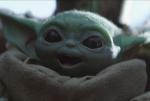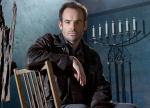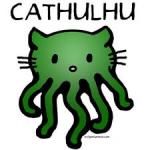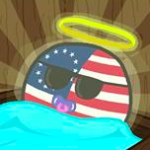Spiridon_Deannis, on 17 November 2010 - 11:45 PM, said:
Honey, with all due respect, and I respect that you are THE WoT-fangirl and you are ab-so-lu-te-ly !!!! cozy with Sanderson...but...
This is not really true. Brandon knows who I am, and that I am more or less in the top rank of non-professional WoT experts, but that's about it. We've met a couple of times, but to him I am probably just another overexuberant fan, and a sometimes inconveniently controversial one at that.
Quote
...Jordan/WoT is just a Tolkien-rip-off...
I think Brandon said it best:
Brandon Sanderson said:
Quote
Your so-called Ubertrope is simply the amplified trope of an existing trope. There is no Sebastian Bach here, because Bach was ORIGINAL (!!)
True, every bit as much as RJ was original. What Bach did essentially amounts to showing us exactly how predictable functional harmony can be, and how much room for expression remains even when you're following the rulebook. He clearly understood the rules better than those who came before him, even though they were often quite talented - Lassus, Josquin, Palestrina, etc. - to the point that some would say he wrote the rules, even though in many ways it's far from true.
amphibian, on 18 November 2010 - 06:38 PM, said:
Terez's criticism of Erikson's MBotF as an RPG campaign is somewhat true - as that is indeed the origin of the world and characters - yet I perceive Erikson as being much better at making the characters on the page real and meaningful to the reader.
There are certainly varied opinions on this sort of thing; a lot of people (perhaps especially WoT fans) feel that character development is one of the major weaknesses of Malazan. And with WoT, appreciating the character development in some ways requires a different approach; the characters are in many ways caricatures of basic personality types, with stereotypical characteristics in particular taken to extremes. Some people like it, some don't.
phib said:
Bach wasn't wholly original, but he was one of the very best exponents of his style of music ever. I'm not sure I can say WoT is similar in that fashion, which is why I think it will not remain alive in academic discussions for as long as Terez believes.
I think that the strength of WoT from an academic perspective comes in the art of foreshadowing. RJ made it clear in many ways that he had the depth of his plot mapped out from the beginning, and I haven't personally read anything that comes close in that aspect. I can't claim to be anything close to an expert when it comes to Malazan, but there was a time when I lurked a good bit on the book discussion forums hoping that the resident experts would bring this sort of thing to my attention, but I found very little in the way of discussion on structure, connectivity, continuity, etc. It seemed like most discussions amounted to who would kick whose ass in a fight and that sort of thing. And I recognize that I'm a bit prejudiced against that sort of thing because Theoryland has historically been hostile to it. Dragonmount is more like this forum because it's the closest thing to an 'official' forum in the WoT fandom.
phib said:
Off the top of my head, the few absolutely massive single story series that have actually survived in academic discussion for a very long time are truly works of genius and often associated with religion (Divine Comedy, Mahabharata etc.) Proust's A la recherche du temps perdu is perhaps the most recent big one (other than the Tolkien fad) and I know nobody who has actually read the dang thing.
The assumption here is that the last decade or so really has been groundbreaking for literature, fantasy in particular; we learned that millions really will read a ten thousand page epic, multiple times, even. The classics of today are often pop culture phenomenons that survived because they have much to offer in the way of academic discussion. For a decade or two at least, it will probably be seen as beneath the academic radar for the most part, but that won't last. Modern epic fantasy is I think comparable to the days of the Dickens serials. I personally hate Dickens, but he was one of RJ's favorites, and in this I suppose I can sort of relate to the frustration that WoT fans had with the pace. I loved every bit of it, but with Dickens, the 'I get paid by the word' crap really got on my nerves. But the academia is often quick to point out that we should take Dickens' flaws in context.
phib said:
Editing yet again - According to Justice Breyer, "fewer than 2 percent of all copyrighted works retain any commercial value after seventy-five years."
Commercial value and academic value are two different things; most topics of literary academic discussion are in the public domain (as it should be, after a time).
amphibian, on 19 November 2010 - 03:03 AM, said:
I disagree with her statement, but not because the books are bad or because she has no clue what she's talking about. I believe that there's a lot there in terms of connections to make, but that vanishingly few people will care enough about this stuff - especially after the efforts of TheoryLand peeps have ceased - to keep going at it over the next few decades.
It's certainly possible, but not as foregone as you make it out to be, I think. Again, it comes back to the number of things in WoT that offer nearly unlimited potential for discussion. I mentioned the structure earlier as the highest point, but there is also a multitude of wealth in the small details that make up the world; Linda at
13th Depository has barely scratched the surface in her analysis of these things, particularly the derivative details.
Spiridon_Deannis, on 19 November 2010 - 04:32 AM, said:
Internet is a motherfucking cruel mistress, thatīs all....
Also a great place for the soapboxing of random fuckheads. Just sayin.
D, on 19 November 2010 - 05:07 AM, said:
I was under the impression that academia pretty much ignored fantasy fiction as a whole...
Things change, fortunately.
Abyss, on 19 November 2010 - 05:30 AM, said:
Quote
And yeah, would be nice if MBotF sold more, but realistically ? What crowd would we be talking about ? The whiners over at Westeros ? How do you sell a +/- 6000 page story arc that started heating up with HoC to a mass market crowd ?
Good point. The RJ solution a la NEW SPRING would be to release dumbed down prequels to draw new readers in with easier material. I doubt he needed it because EYE is a pretty basic bring-in-the-naive-farmboys series opener, but there it is.
I honestly think RJ only published New Spring because the fans were asking for backstory. Later he decided that he would finish the main series books before doing any more prequels, and then he decided that he would do the outriggers - set about 5-10 years post-LB - before doing the other two prequels. He said he found them to be more interesting. Personally, I enjoyed New Spring, and I'm hoping that Brandon one day writes the other two planned prequels; I understand that RJ left detailed notes for them, as well as for the outriggers. I don't think New Spring was 'dumbed down'; it was certainly smaller in scope than the main series plot because the destination was already known. It was more about filling in some gaps, but it was still intricately connected to the rest of the series in the small details and foreshadowings; quotes from it are often important in theorizing.
Cobbles, on 22 November 2010 - 06:36 PM, said:
Cause, on 19 November 2010 - 10:04 AM, said:
... and in a gollum like moment Padan Fains interference will save Rand by accident. You heard it here first!
Uhm, yeah, about the 'first'...no, not really.
At least, it's entirely consistent within the world. As someone else put it so well, WoT is supposed to be the ubertrope, and as such, it incorporates legends and myths throughout times, which I suppose includes whatever Tolkien wrote. For instance, let's call book one an homage to 'Fellowship'. And yes, Perrin's charge reminded me of how Peter Jackson interpreted Helm's Deep. And the Fain/Gollum connection is probably as old as WoT itself.
There were some intentional Tolkien references in WoT - namely the setting and events of the first ten or so chapters, purposefully done as an homage, and also little details like The Nine Rings in TGH - but Brandon has promised that Fain is not headed in the Gollum direction, despite certain similarities:
Brandon Sanderson said:
Cobbles said:
Academic discussions? Please don't confuse internet discussion boards (such as this one) with academic discussions.
Trust me, I'm not. Quite the opposite. I think that the general run of opinions on internet message boards - even relatively sophisticated book discussion forums - is not really representative of what the academia would find to be interesting at all. We are more representative of pop culture, which prefers the titillation, the shockers, the well-crafted action scene, etc. These things have value but are not often the focus of academic discussion.

 Help
Help



















